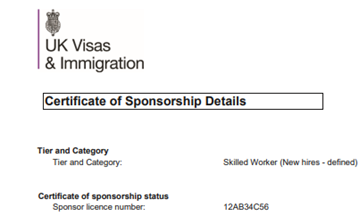Prison Service Officers (Below Principal Officer), classified under SOC Code 3314, play a critical role in the management and rehabilitation of prisoners within the UK penal system. Their duties encompass a wide range of responsibilities aimed at maintaining safety and order in correctional facilities, including:
- Escorting prisoners to and from cells, ensuring their security during meals, recreation, and visiting periods.
- Monitoring prisoner behavior to identify any infringements of regulations and ensure compliance with established protocols.
- Conducting thorough searches of prisoners and cells to uncover weapons, drugs, and other contraband items.
- Guarding entrances and perimeter walls to maintain the security of the facility.
- Investigating disturbances or unusual occurrences, responding appropriately to incidents to mitigate risks.
- Escorting prisoners who are being transferred between institutions, ensuring their safe and secure transport.
- Running rehabilitation and support programmes to promote positive behavioral change and facilitate reintegration into society.
- Providing care and support to prisoners in custody, including monitoring and preventing self-harm.
- Training and supervising prison staff to enhance operational effectiveness and maintain high standards of conduct.
- Reporting on prisoners' conduct and behavior as necessary, ensuring accurate documentation and communication for management.
As the landscape of correctional services evolves, the demand for skilled Prison Service Officers continues to be significant. This guide aims to assist HR professionals in effectively recruiting and supporting these vital roles within the UK’s prison system.
What is SOC Code 3411 for Prison service officers (below principal officer)?
SOC Code 3314 refers to prison service officers (below principal officer) who are responsible for the supervision and care of inmates within a correctional facility. Their responsibilities can include:
- Escorting prisoners: Accompanying inmates to and from cells, ensuring their safety and security during transitions.
- Supervising during meals and recreation: Overseeing inmates during meal times and recreational activities to maintain order and safety.
- Monitoring for infringements: Observing inmate behavior for any violations of regulations and taking appropriate action.
- Searching for contraband: Conducting searches of prisoners and cells for weapons, drugs, and other prohibited items.
- Guarding premises: Securing entrances and perimeter walls to prevent unauthorized access and maintain facility integrity.
- Investigating disturbances: Addressing and resolving any unusual occurrences or disturbances within the facility.
- Managing prisoner transfers: Escorting inmates who are being transferred from one institution to another to ensure their safety.
- Running rehabilitation programs: Implementing and overseeing prisoner rehabilitation and support initiatives.
- Providing care and support: Offering emotional and practical support to prisoners, with a focus on preventing self-harm.
- Training staff: Educating and supervising new and existing prison staff on protocols and procedures.
- Reporting conduct: Documenting and reporting on inmates' behavior and conduct as necessary for management and review.
Prison service officers play a vital role in maintaining the safety and security of correctional facilities, supporting inmate rehabilitation, and ensuring adherence to regulations.
Eligibility to Hire Prison service officers (below principal officer) (SOC Code 3411)
1. Job Requirements
Prison Service Officers (below Principal Officer) must demonstrate strong interpersonal skills and meet certain qualifications or experience criteria. These may include:
- Supervisory Skills: Ability to oversee groups of prisoners during meals, recreation, and visiting periods while ensuring compliance with regulations.
- Security Awareness: Knowledge of security protocols to effectively guard entrances and perimeter walls, and to search for contraband items such as weapons and drugs.
- Institutional Knowledge: Familiarity with procedures related to prisoner transfers and the ability to respond appropriately to disturbances or unusual occurrences.
- Rehabilitation Programs: Experience in running or assisting with prisoner rehabilitation and support programs, focusing on care and preventing self-harm.
- Training Abilities: Competence in training and supervising junior prison staff to maintain a safe and secure environment.
- Reporting Skills: Capability to accurately report on prisoners’ conduct and any incidents as necessary.
Ensure that the job description aligns with SOC Code 3314 and that the officer’s experience and conduct meet the expectations for the role.
- Salary Thresholds
- Use the Minimum Salary Calculator to ensure your salary offer meets immigration requirements.
Sponsoring Prison service officers (below principal officer): A Step-by-Step Guide for HR Professionals
Once you’ve confirmed that the role and candidate meet the eligibility requirements, follow this step-by-step guide to sponsoring Prison service officers (below principal officer) under SOC Code 3314.
Step 1: Obtain a Sponsor Licence
Before hiring non-UK Prison service officers (below principal officer), your company or institution must obtain a sponsor licence. This licence enables you to legally sponsor overseas Prison service officers (below principal officer) under the Skilled Worker Visa program.
- Sponsor Licence Application: Submit documentation proving that your business is legitimate and has a genuine vacancy. Visit the sponsor licence application guide for more information.
- Sponsor Licence Fees: Small businesses typically pay £574, while larger institutions pay £1,579. For more information, visit the sponsor licence fees guide.
- Processing Time: Applications typically take up to 8 weeks, but using the Sponsor Licence Priority Service can reduce the processing time to 10 working days.
Once your sponsor licence is approved, you will receive a sponsor licence number, which allows you to assign Certificates of Sponsorship (CoS).
Step 2: Assign a Certificate of Sponsorship (CoS)
Once you have your sponsor licence, the next step is to assign a CoS to the Prison service officers (below principal officer). This document provides key details about the job and the individual being sponsored.
- Defined vs Undefined CoS: Use a Defined CoS for Prison service officers (below principal officer) applying from outside the UK, and an Undefined CoS for those already in the UK. Learn more in the Defined & Undefined Certificates of Sponsorship guide.
- Required Documents: Provide details such as the Prison service officers (below principal officer)’s portfolio, passport and job offer. Refer to Documents Required for Certificate of Sponsorship for a full list of necessary documents.
Step 3: Apply for the Skilled Worker Visa
Once the CoS is issued, the Prison service officers (below principal officer) can apply for the Skilled Worker Visa.
- Visa Fees: Fees vary depending on the role and visa length—use the visa fees calculator to estimate the costs.
- Immigration Skills Charge: Employers are required to pay this charge as part of sponsoring non-UK workers. This is separate from visa fees.
Conducting a Right to Work Check for Prison service officers (below principal officer)
Before the Prison service officers (below principal officer) begins working, you must conduct a right to work check to ensure they are legally allowed to work in the UK.
- Manual Right to Work Check: Verify original documents such as the Prison service officers (below principal officer)’s passport and visa.
- Online Right to Work Check: If the Prison service officers (below principal officer) holds an eVisa, you can use the UK government’s online system to verify their right-to-work status.
For more details on how to perform these checks, see the right to work check guide.
Post-Hiring Responsibilities and Compliance
- Record-Keeping and Reporting
- Record-Keeping: Maintain accurate and up-to-date records of the Prison service officers (below principal officer)’s employment details, salary and contact information.
- Reporting Changes: Report any significant changes to the Prison service officers (below principal officer)’s role—such as promotions or salary increases—via the Sponsor Management System (SMS).
- Sponsor Licence Duties and Compliance
- Failure to comply with your sponsor licence duties can result in penalties or sponsor licence revocation, impacting your ability to sponsor future Prison service officers (below principal officer)s.
How Borderless Can Help with Sponsoring Prison service officers (below principal officer)
Sponsoring Prison service officers (below principal officer) under SOC Code 3314 can be a complex process, but Borderless can simplify it for you. We offer comprehensive support to help you manage the entire sponsorship process.
End-to-End Sponsorship Support
At Borderless, we assist with:
- Sponsor Licence Application: Guiding you through the application process and ensuring all required documents are submitted correctly.
- Certificate of Sponsorship Assignment: Streamlining the CoS process to make hiring easier.
- Compliance Management: Helping you stay compliant with immigration laws to avoid penalties.
If you need assistance with hiring or sponsoring Prison service officers (below principal officer), get in touch for personalised support.
Conclusion
Hiring and sponsoring Prison service officers (below principal officer) under SOC Code 3314 can be a rewarding way to enrich the cultural landscape of your organisation. By following the steps outlined in this guide, you can successfully navigate the sponsorship process while ensuring compliance with UK immigration laws.
For further guidance, Borderless is ready to assist you with all your sponsorship needs. Contact us for expert advice.
Automate Home Office Audits with Borderless
The Borderless platform provides a centralized system for all sponsorships, automating reminders for key tasks and ensuring best practices across your organization, simplifying audit preparation and ongoing compliance.






